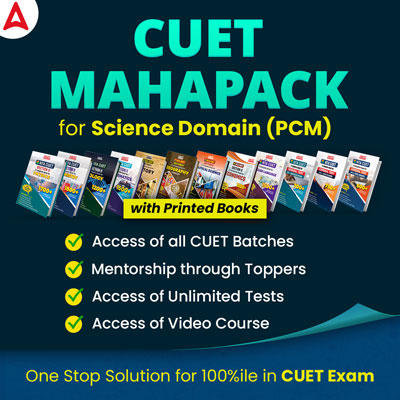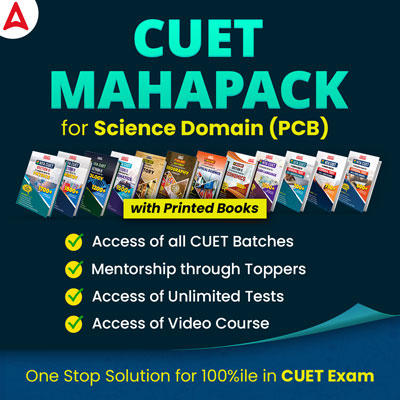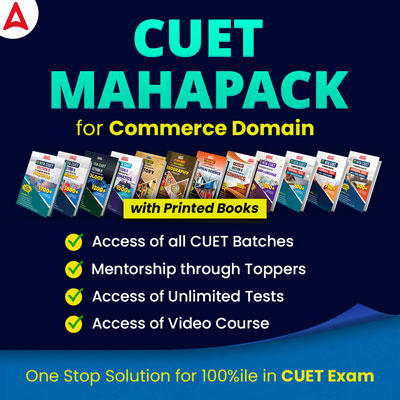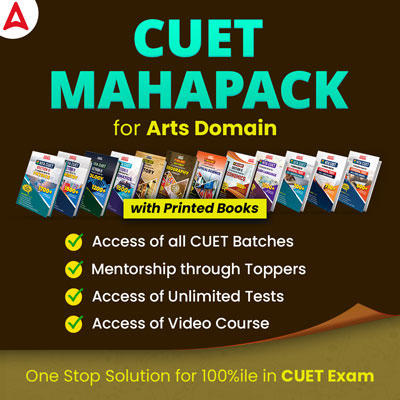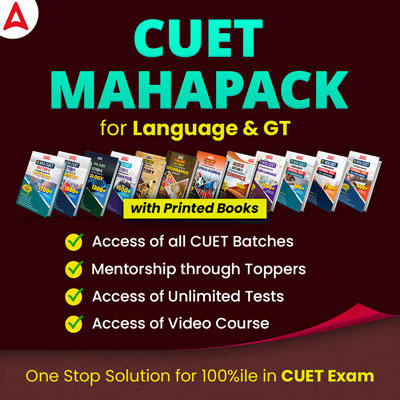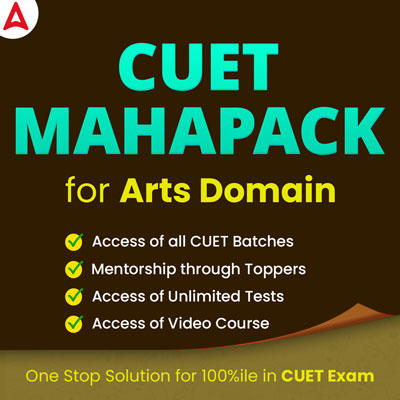Table of Contents
What to do after 12th PCM: India is also known as the “Engineers Producer Country” in the world. With this statement, we can get a round guess about how many students clears 12th with PCM. Most of students opt for B.tech after it, and other students looks for better alternative for it. Still, in India, Students do not have any specific or broad idea about “What to do after 12th PCM?” this is why they tries to find the answer on many platforms.
PCM Career Options
If you are also one of them who do not have any specific Idea about “What to do after 12th PCM?”, then please be with us till the end of this article, because we are going to provide you all the related information about the same.
PCM Career Options- Exams After 12th Science PCM and PCB
Here, we have added a few of most important and famous career options in the field of Science after 12th PCM. Also, we have mentioned details of each stream-
- Engineering
In Engineering, Engineers design, build, and maintain various structures, machines, and systems Includes. They apply principles of math and science to solve problems and create practical solutions in this field.
- Medicine
in the Medical field, Generally, professionals diagnose and treat diseases, injuries, and other medical conditions. They may work in hospitals, clinics, or private practices.
- Architecture
In the field of Architecture, Architects design buildings and other structures, considering both aesthetics and functionality. They use math and science to design safe and efficient structures.
- Physicist
in this field, Physicists study the laws of the universe, including matter, energy, space, and time. They use math and science to develop theories about the natural world.
- Chemist
In this field, Chemists study the properties, composition, and behavior of matter. They may work in research and development, manufacturing, or academia.
- Mathematician
Mathematicians use mathematical theories and techniques to solve practical problems. They may work in research, finance, or engineering.
- Geologist
Generally, Geologists study the earth’s composition, structure, and processes. They may work in natural resource exploration, environmental consulting, or academia.
- Meteorologist
Meteorologists study about the earth’s atmosphere, weather patterns, and climate. They may work in weather forecasting, research, or education.
- Environmental Scientist
Environmental scientists study about the natural environment and its relationship with human activities. They may work in pollution control, conservation, or sustainability.
- Astrophysicist
Astrophysicists study related to the physical properties and behavior of celestial objects, such as stars, planets, and galaxies. They use math and physics to develop theories about the universe.
- Biotechnologist
In this field, Biotechnologists use biological processes and techniques to develop new products and technologies. They may work in pharmaceuticals, agriculture, or research.
- Data Scientist
In this field, Data scientists use mathematical and statistical methods to analyze large amounts of data. They may work in technology, finance, or marketing.
- Forensic Scientist
In this field, the forensic scientists use science to investigate crimes and analyze evidence. They may work for law enforcement agencies or in private forensic labs.
- Marine Biologist
In this field, Marine biologists study marine life and ecosystems. They may work in research, conservation, or education.
- Materials Scientist
Materials scientists study related to the properties and behavior of materials, such as metals, ceramics, and plastics. They may work in manufacturing, research, or product development.
- Nanotechnologist
Nanotechnologists study related materials at the nanoscale, or one billionth of a meter. They may work in electronics, medicine, or energy.
- Petroleum Engineer
Petroleum engineers design and develop methods for extracting oil and gas from the earth. They may work in oil and gas exploration, drilling, or production.
- Robotics Engineer
Robotics engineers design and develop robots for various applications, such as manufacturing, healthcare, or space exploration.
- Statistician
Statisticians use math and statistical methods to collect and analyze data. They may work in government, healthcare, or marketing.
- System Administrator
System administrators manage and maintain computer systems and networks. They may work in information technology departments in various organizations.
Exams for PCM Students After 12th
There are many Engineering courses available after the 12th PCM, we have mentioned below some of them:-
| Aerospace Engineering | Automobile Engineering |
| Civil Engineering | Chemical Engineering |
| Computer Science and Engineering | Electrical and Electronics Engineering |
| Electronics and Communication Engineering | Mechanical Engineering |
| Metallurgical Engineering | Mining Engineering |
| Petroleum Engineering | Textile Engineering |
After 12 PCM Career Options
There are several Architecture courses available after the 12th PCM. We have mentioned many of them below:-
- Bachelor of Architecture (B.Arch)
- Diploma in Architecture (D.Arch)
- Bachelor of Planning (B.Plan)
- Master of Architecture (M.Arch)
- Master of Planning (M.Plan)
Entrance Exam After 12th PCM
There are several competitive exams that students can take after 12th PCM to get admission to various courses. These are the exams we are talking about:-
- Joint Entrance Examination (JEE) for admission to Engineering courses
- National Aptitude Test in Architecture (NATA) for admission to Architecture courses
- All India Pre-Medical/Pre-Dental Entrance Test (AIPMT/NEET) for admission to medical courses
- National Eligibility cum Entrance Test (NEET) for admission to dental courses
- National Defence Academy (NDA) examination for admission to the Indian Armed Forces
- Common Law Admission Test (CLAT) for admission to law courses
- Indian Institute of Technology Joint Admission Test (IIT-JAM) for admission to postgraduate courses in Science
- Graduate Aptitude Test in Engineering (GATE) for admission to postgraduate courses in Engineering and Technology
- Common Admission Test (CAT) for admission to management courses
- National Eligibility Test (NET) for admission to research programs in various fields
What are the Opportunities for research after the 12th PCM?
After 12th PCM, students can pursue research opportunities in various fields, such as-
- Science and Technology research in institutions like the Indian Institutes of Technology (IITs), Indian Institutes of Science Education and Research (IISERs), and Indian Institutes of Science (IISc)
- Research in government institutions like the Council of Scientific and Industrial Research (CSIR), Defense Research and Development Organization (DRDO), and Indian Space Research Organization (ISRO)
- Research in private institutions like Tata Institute of Fundamental Research (TIFR) and Infosys Science Foundation
- Pursuing a Ph.D. program in a field of interest after completing a Bachelor’s or Master’s degree.
Career options in the field of Statistics after 12th PCM
After 12th PCM, students can pursue several career options in the field of Statistics, such as:
| Statistician | Actuary |
| Data Analyst | Business Analyst |
| Operations Research Analyst | Market Research Analyst |
| Risk Analyst | Quantitative Analyst |
| Financial Analyst | Biostatistician |
Different diploma courses after 12th PCM
After 12th PCM, students can pursue several diploma courses, such as:
| Diploma in Mechanical Engineering | Diploma in Civil Engineering |
| Diploma in Electrical Engineering | Diploma in Electronics and Communication Engineering |
| Diploma in Computer Science Engineering | Diploma in Chemical Engineering |
| Diploma in Automobile Engineering | Diploma in Mining Engineering |
| Diploma in Mechatronics Engineering | Diploma in Petroleum Engineering |
Career Chart After 12th Science
After completing 12th grade with a science background in India, students have a plethora of career options to choose from. Here’s a brief overview of some popular career paths:
Engineering: This is one of the most sought-after career paths for science students. Various branches such as Mechanical, Civil, Electrical, Computer Science, etc., offer lucrative opportunities in both the public and private sectors.
Medicine: Pursuing a career in medicine involves taking entrance exams like NEET (National Eligibility cum Entrance Test) for MBBS (Bachelor of Medicine, Bachelor of Surgery) or other allied fields like BDS (Bachelor of Dental Surgery), BAMS (Bachelor of Ayurvedic Medicine and Surgery), etc.
Bachelor of Science (B.Sc.): Students can opt for a B.Sc. degree in disciplines like Physics, Chemistry, Mathematics, Biology, Biotechnology, Computer Science, etc. These degrees can lead to various career options in research, academia, industry, and more.
Bachelor of Technology (B.Tech): Similar to engineering, B.Tech offers specialized courses in various fields like Information Technology, Electronics and Communication, Aerospace, etc.
Bachelor of Architecture (B.Arch): For those interested in designing buildings and structures, B.Arch is a suitable option.
Bachelor of Pharmacy (B.Pharm): This degree equips students with knowledge of pharmaceutical science and its applications, leading to careers in the pharmaceutical industry, research, etc.
Bachelor of Computer Applications (BCA): It is an undergraduate degree in computer applications, focusing on programming languages, database management, software development, etc.
Commercial Pilot Training: For students interested in aviation, becoming a commercial pilot is an option. They can enroll in flying schools for training.
Defense Services: Aspiring candidates can join the Indian Armed Forces through exams like NDA (National Defense Academy), CDS (Combined Defense Services), etc.
Fashion Designing: Pursuing a degree or diploma in fashion designing from reputed institutes can lead to careers in the fashion industry.
Hotel Management and Catering: Institutes offer courses in hotel management and catering which can lead to careers in the hospitality industry.
Mass Communication and Journalism: For those interested in media, journalism, advertising, etc., courses in mass communication and journalism are available.

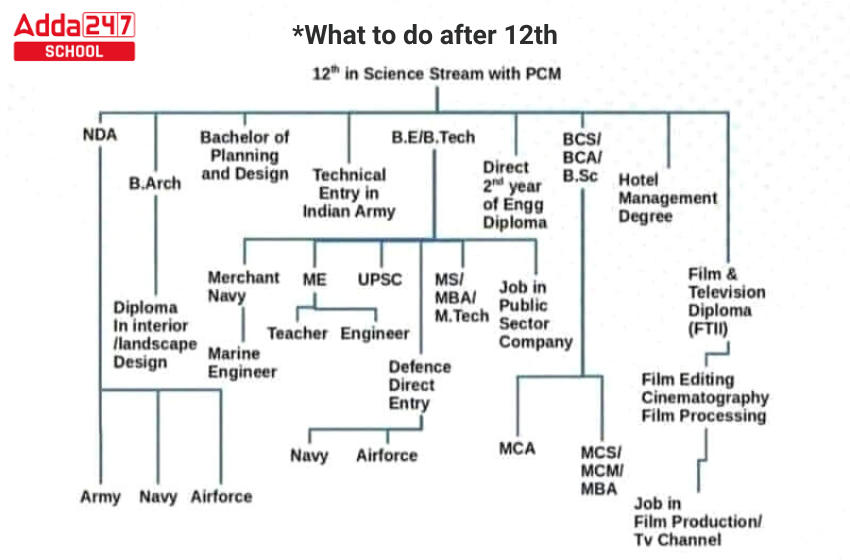
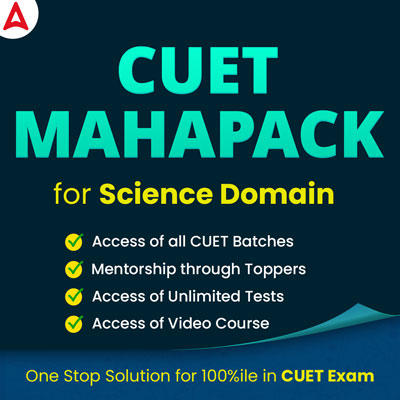


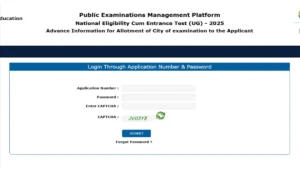 NEET City Intimation Slip 2025 Out at ne...
NEET City Intimation Slip 2025 Out at ne...
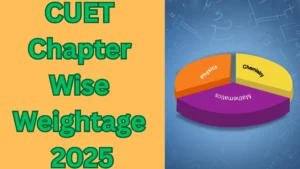 CUET Chapter Wise Weightage 2025 for Sci...
CUET Chapter Wise Weightage 2025 for Sci...
 [Live Update] UP Board Result 2025 Class...
[Live Update] UP Board Result 2025 Class...
